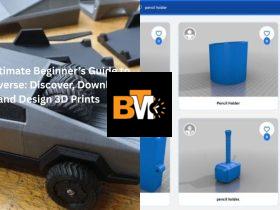Payroll is one of the most essential elements of running a business – and one of the most complex tasks too. While managing payroll can seem like a routine task, it can quickly become a source of stress for many small and medium-sized enterprises. For SME’s, managing payroll effectively is not just about paying your staff on time – it’s also about complying with HMRC rules, maintaining accurate records, and fostering employee trust.
This guide explores the most common payroll pitfalls for SME’s – and how to avoid them.
Understanding Payroll Compliance and HMRC Rules
Payroll errors often stem from a lack of understanding around HMRC regulations. All employers must register for PAYE (Pay as You Earn) if they have any staff, and they are also required to submit Real Time Information (RTI) reports every time they pay for their staff. Mistakes like using incorrect tax codes or missing reporting deadlines can result in penalties and employee dissatisfaction.
Understanding legal responsibilities including things like statutory sick pay, maternity/paternity pay, and holiday entitlements is crucial. Working with trusted SME accountants can ensure compliance and offer guidance on the latest HMRC rules, helping businesses avoid costly errors.
Managing Rising Payroll Costs in 2025
UK SMEs are currently feeling the pressure of increased payroll costs. With higher National Insurance contributions, minimum wage increases, and pension auto-enrolment obligations, SMEs are feeling the squeeze. These increases can have quite a significant impact on small business budgets, particularly for those operating in competitive sectors.
To manage these rising costs, SMEs should consider flexible staffing solutions, review their employment contracts, and explore tax-efficient benefits. Employers may also benefit from adopting salary sacrifice schemes to ease the burden and reduce National Insurance liabilities. SMEs must also factor in additional costs such as pension auto-enrolment contributions, which are a legal requirement for eligible employees.
Leveraging Technology for Accurate Payroll Processing
Manual payroll processes are prone to errors and inefficiencies. By adopting payroll software, SMEs can streamline operations by automating calculations, tax deductions, and pension contributions, saving time and reducing risk.
Platforms such as QuickBooks, Xero, and Employment Hero offer features tailored to small businesses, including auto-enrolment support and employee self-service portals.These modern tools and platforms allow for automated tax calculations, pension contributions, and payslip generation. Many also offer cloud-based solutions that integrate with HR systems and provide real-time reporting, which is especially useful for tracking overtime, sick leave, and holiday accruals.
By embracing payroll software, SMEs can streamline operations, reduce administrative burdens, and ensure compliance with both legal and internal requirements.
Effective Communication with Employees About Payroll
Even when payroll is accurate, lack of communication can create confusion.Transparent communication around payroll builds trust and reduces confusion.It’s important to provide detailed payslips and explain any changes to tax codes, pension contributions, or statutory deductions where necessary.
Regular updates, Q&A sessions, and an open-door policy on payroll questions can significantly enhance staff morale and retention. Additionally, offering guidance on understanding payslips and setting up a dedicated contact for payroll queries can help avoid disputes and improve staff satisfaction.







Leave a Reply